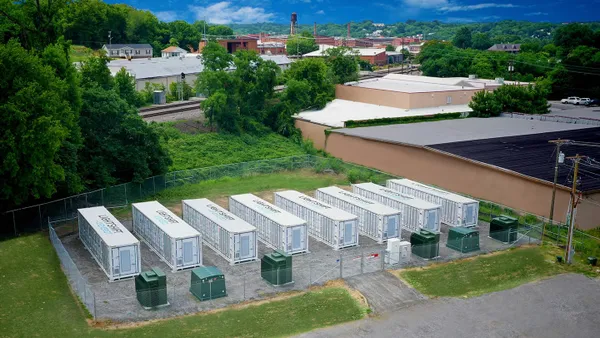Dive Brief:
- Hawaiian Electric anticipates a temporary increase in customer rates due to high oil costs after the retirement next month of Hawaii’s last coal plant, the 180-MW AES plant on Oahu, Scott Seu, president and CEO of parent company Hawaiian Electric Industries, said during an earnings call Monday.
- Hawaiian Electric will turn to a combination of anticipated renewable and storage resources, as well as existing generation sources, to ensure reliability after the plant retires, but because it will be more reliant on oil-fired generation for a period, customers could see rate increases. The utility forecasts that a typical residential customer will see a 7% monthly bill increase — around $15 — starting in October.
- “We know our customers are feeling financially challenged, as inflation and high fuel costs continue to pressure household expenses,” Seu said on the call. The utility is engaged in a variety of different ways to help customers manage their bills, he added, including offering flexible payment plans, connecting customers to assistance programs, and encouraging electricity conservation and energy efficiency.
Dive Insight:
The Oahu coal plant, which is the single largest generator on the island, is set to retire Sept 1. Before oil prices spiked this year, the utility anticipated that moving away from coal-fired generation would lead to a “relatively modest” cost increase of around $2 per month for a typical customer, according to a Hawaiian Electric press release. However, after Russia’s invasion of Ukraine drove up oil prices, the estimate changed.
“This is a critical turning point in the long-term transition of Hawaii’s energy landscape. Unfortunately, the timing has converged with global events that are currently increasing the cost of electricity,” Shelee Kimura, president and CEO of Hawaiian Electric, said in a statement.
Hawaiian Electric reported net income of $44.1 million for the second quarter, up from $41.9 million during the same period last year.
At the same time, the company sees a lot of potential upside from the Inflation Reduction Act, especially with respect to its tax credit provisions and support of renewable energy projects, Seu said. The bill, which the Senate approved Sunday and now heads to the House of Representatives for a vote on Friday, includes incentives and tax credits for clean energy, electric vehicles, nuclear power and clean hydrogen.
“We have hundreds of megawatts that we’re seeking in [requests for proposals] that are coming up of renewable energy, and so this will really help lower costs for our customers as we go through this procurement process,” Kimura said on the call Monday, although the benefits would depend on the timing of the RFPs and bids that come through, she added.
The Inflation Reduction Act will be a huge help for the economy as well as the planet, Isaac Moriwake, managing attorney with Earthjustice, agreed in an email.
“Unfortunately, utility customers are getting hit on all sides right now. In addition to oil prices, escalating inflation will directly increase bills since under Hawai’i’s performance-based rate mechanisms HECO’s revenues are indexed to general inflation. But since the utility passes through most or all of these costs to ratepayers, I wouldn’t be surprised if HECO sees its profits rise while its customers sink deeper into a hole,” he added.














